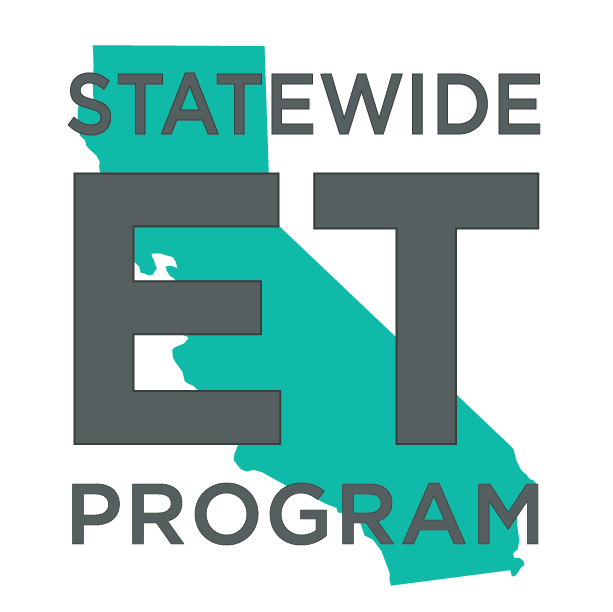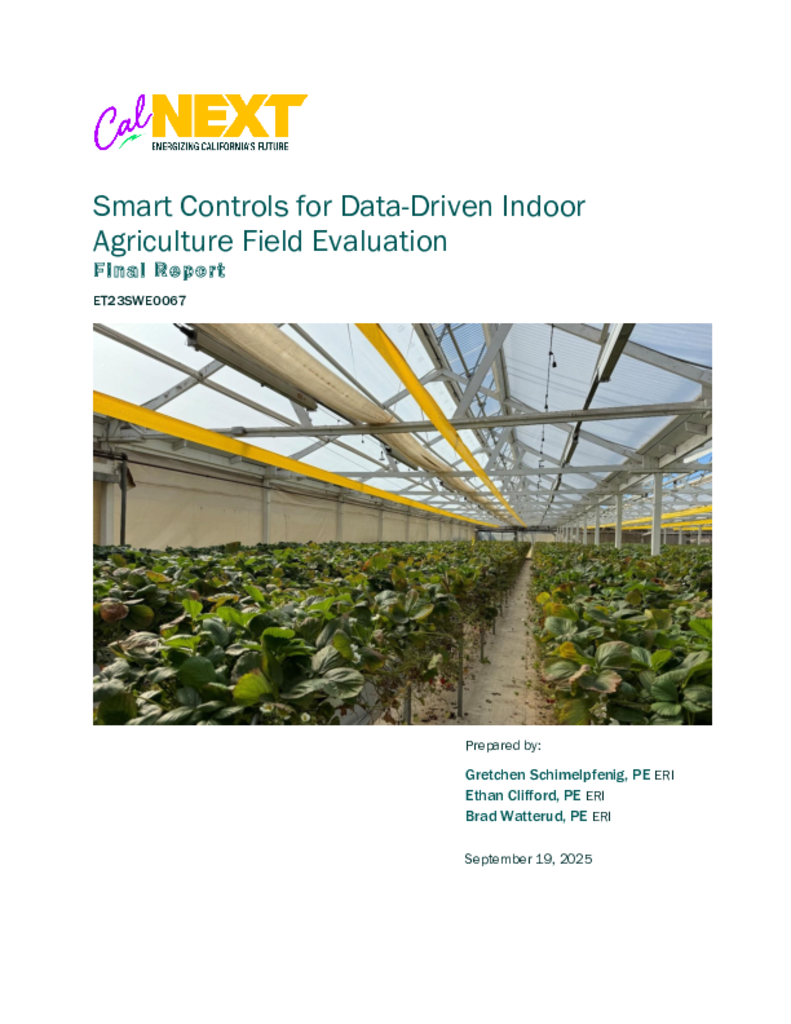ET23SWE0067 - Smart Controls for Data-Driven Indoor Agriculture Field Evaluation
This project will explore the market potential and evaluate the impact of smart controls technologies on Controlled Environment Agriculture (CEA), which involves the cultivation and manufacturing of food and floriculture products. The focus is on automated, integrated, and intelligent environmental (HVAC, lighting, and crop irrigation and nutrient management) controls technologies used in indoor and greenhouse CEA facilities in California.
The project will investigate environmental CEA controls capable of:
- Automation: Hardware and software that optimize individual CEA systems and reduce demand and energy use by implementing control strategies for lighting, HVAC, and irrigation systems, such as scheduling, dimming, daylighting, temperature and humidity optimization, staging and modulation of pumps and fans, and demand management.
- Integration: Hardware and software that optimize connected CEA systems, including lighting, heating, ventilation, cooling, and irrigation/fertigation, to reduce demand and energy use.
- Artificial Intelligence: Hardware and software systems incorporating cameras and sensing technologies that utilize machine learning to optimize resource use based on plant growth and quality characteristics, including light levels, temperature, humidity, and airflow, and irrigation flowrates.
The project includes a market assessment, field evaluations, and a technology roadmap to identify cost-effective energy efficiency and demand response measures for smart environmental controls in the CEA sector. The deliverables will identify cost-effective measures and present program offerings, including the need for new or updated measure packages.
The market assessment will investigate smart controls adoption, technology penetration, and energy savings potential using literature review, surveys, interviews, and site visits. The technology demonstration will improve emerging smart CEA controls technologies and recommend measures for program adoption through pilot deployments in greenhouses and indoor farms which will assess existing products and recommend measures for adoption within program channels. This new technology roadmap for smart CEA controls will evaluate environmental controls technologies with the highest potential for energy savings and demand response, identify and propose paths to address market barriers, and provide intervention strategies for market implementation.
The CalNEXT Smart Controls for Data-Driven Indoor Agriculture Field Evaluation project explored the market potential for and evaluated the impact of “smart controls” technologies on controlled environmental agriculture (CEA). This method of agriculture involves the cultivation and manufacturing of floriculture, food, and cannabis products. The study focused on automated, integrated, and intelligent environmental control technologies used in indoor and greenhouse CEA facilities in California. Smart controls monitor, evaluate, and control energy consumption of the facility’s heating, ventilation, and air conditioning (HVAC); lighting; crop irrigation; and nutrient management systems. More greenhouses and indoor farms are being built in California to meet increasing demand for a consistent supply of high-quality horticultural products. The project included a market assessment, field evaluations, and this technology roadmap (recommendations) to identify cost-effective energy efficiency and demand response measures for smart environmental controls in California’s CEA sector.
From December 2024 to May 2025, the project team documented issues and resolutions to identify field demonstration deficiencies. The technology roadmap shares five program pathway recommendations, including ideas for two new energy efficiency measure packages. The results from the study yielded the following lessons learned: 1. California cannabis, tomato, vegetable, herb, and strawberry growers are more likely to use smart heating, ventilation, and air conditioning controls than some floriculture growers due to higher profit margins and tighter plant-specific environmental requirements. 2. CEA businesses are more likely to be Hard-to-Reach customers and require unique outreach strategies. 3. Automated greenhouse lighting controls and automated greenhouse ventilation fan controls can achieve significant energy savings for growers across California. 4. The proposed changes to the 2028 version of the California Energy Code Title 24, Part 6 requirements for greenhouses may include a requirement for greenhouse lighting controls. The project concluded that accelerating the adoption of integrated and intelligent control systems with energy monitoring at CEA businesses may be challenging because some CEA facilities are located in areas that require a higher level of effort for program outreach. Similarly, small farms may not produce cost-effective energy savings for a smart CEA environmental controls energy efficiency program.

